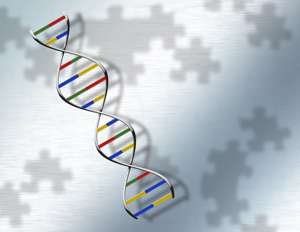A computer platform can pinpoint the genes behind rare diseases that have eluded diagnosis

A computer program that cross-references disease symptoms with DNA sequencing data can detect the faulty genes responsible for rare disorders with greater accuracy than other methods. Developed by scientists at A*STAR, the software could provide a valuable tool for clinicians hoping to offer a genetic diagnosis for patients—especially children—with mysterious ailments.
"An early diagnosis for these children could give them a head start in their therapeutic treatment and help improve the quality of their lives," says Pauline Ng, a bioinformatics researcher at the A*STAR Genome Institute of Singapore who led the study.
An estimated 350 million people worldwide suffer from rare diseases, many of them with conditions that continue to elude explanation. To solve these medical mysteries, many hospitals now offer genome sequencing for patients with undiagnosed disorders. However, fewer than half of all genetic sleuthing efforts find a DNA culprit.
Part of the problem rests in the existing suite of analytical tools. So Ng and her colleagues Asif Javed and Saloni Agrawal decided to develop a better method. The researchers gathered genomic records from individual patients and combined the information with comparable data about known human diseases. They used this material to develop an informatics framework for patients with undiagnosed diseases, called Phen-Gen, which Javed describes as "the first algorithm to integrate patient symptoms for genome-wide predictions." The researchers also created a web portal (phen-gen.org) to support clinicians and researchers, including those with limited computational experience.
In computer simulations to test the accuracy of Phen-Gen, the software identified the causal gene in 88 per cent of cases. This was a 19–58 per cent improvement over simulations run on existing prediction algorithms.
The researchers further evaluated the efficacy of Phen-Gen with real patient data taken from people with intellectual disabilities and no known cause of their disorders. Phen-Gen ranked the causal gene at the top of the list in 8 of 11 patients, and within the top five genetic suspects in all patients. What's more, Phen-Gen ran its analysis faster than other methods, yielding results in just 15 to 30 minutes.
Ng and her team are now working with clinicians in Singapore and internationally to elucidate the genetic cause of multiple rare disorders with the help of Phen-Gen. Many independent groups are also starting to incorporate the software into their own evaluations. "We are happy to report that over the past two months more than 60 users have downloaded the software," says Ng.
More information: Javed, A., Agrawal, S. & Ng, P. C. Phen-Gen: "Combining phenotype and genotype to analyze rare disorders." Nature Methods 11, 935–937 (2014). dx.doi.org/10.1038/nmeth.3046















